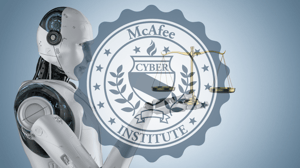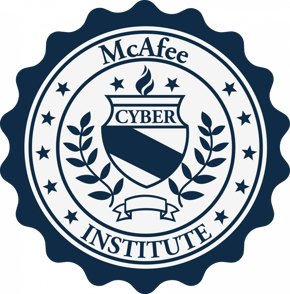Unveiling the Future of Investigations & Intelligence
Embracing Cutting-Edge Tech
Today in the McAfee Institute blog we will explore:
will The landscape of investigations and intelligence gathering is rapidly evolving. Advancements in technology are revolutionizing how law enforcement and intelligence agencies conduct their operations. In this blog post, we will explore the most innovative trends shaping the future of investigations and intelligence.
Artificial Intelligence (AI) and Predictive Policing
AI is transforming the way investigations are conducted. By leveraging big data analysis, machine learning, and crime prediction algorithms, law enforcement agencies can identify patterns and trends to anticipate and prevent criminal activities. Predictive policing enables investigators to make data-driven decisions and allocate resources efficiently.
In recent years, AI-powered tools have emerged as an indispensable asset for investigators. These tools can process vast amounts of data in real-time, helping law enforcement agencies identify crime hotspots, monitor gang activities, and optimize patrol routes. As AI technology continues to advance, its applications in predictive policing will become even more diverse and sophisticated.
Cyber Intelligence and Digital Forensics
As technology continues to advance, so does the complexity of cybercrimes. Cyber intelligence tools and digital forensics play a crucial role in identifying, analyzing, and preventing cyber threats. By mastering these technologies, investigators can stay one step ahead of cybercriminals and protect sensitive information.
Cyber intelligence involves collecting, analyzing, and disseminating information about potential cyber threats to support decision-making and proactive security measures. Digital forensics, on the other hand, focuses on investigating digital devices to gather evidence and uncover the details of cybercrimes. Both fields require expertise in various tools and techniques, such as malware analysis, network forensics, and mobile device forensics.
Social Media Monitoring and Open Source Intelligence (OSINT)
In today's interconnected world, social media platforms have become a treasure trove of information for investigators. Through social media monitoring and OSINT, law enforcement can gather valuable insights, track suspects, and uncover criminal networks.
Social media monitoring involves using specialized tools and techniques to track and analyze publicly available information on social media platforms. This can help investigators identify potential threats, monitor radicalization, and track the activities of criminal organizations. OSINT is a broader intelligence-gathering discipline that involves collecting and analyzing information from publicly available sources, such as websites, forums, and news articles.
Biometric Identification and Surveillance Technologies
The integration of biometric identification systems and advanced surveillance technologies such as facial recognition and geospatial intelligence has greatly enhanced the effectiveness of law enforcement. These tools help investigators to quickly identify suspects, track their movements, and solve cases with higher accuracy.
Biometric identification systems use unique physical characteristics, such as fingerprints, facial features, or iris patterns, to identify individuals. These systems have become increasingly accurate and reliable, allowing law enforcement agencies to quickly match suspects with criminal databases. Advanced surveillance technologies, such as facial recognition and geospatial intelligence, enable investigators to monitor public spaces, track suspects in real-time, and analyze geographical patterns of criminal activities.
Balancing Privacy and Surveillance
As technology evolves, striking a balance between privacy and surveillance becomes increasingly important. Understanding the ethical and legal implications of using cutting-edge investigative technologies is crucial for professionals in the field.
Investigators must ensure that their use of surveillance and data collection technologies complies with local, national, and international privacy regulations. This involves staying up-to-date with changing laws, obtaining necessary permissions, and maintaining transparency with the public. Additionally, investigators must be aware of the potential for biases in AI algorithms and work to mitigate these biases to ensure fair and just outcomes.
Empower Your Career with McAfee Institute Board Certifications
To navigate the future of investigations and intelligence, it's essential to stay updated with the latest trends and technologies. By pursuing a
McAfee Institute Board Certification
You'll gain in-depth knowledge, practical skills, and access to a global network of professionals.
McAfee Institute offers a variety of certification programs designed to help you excel in the rapidly evolving fields of investigations and intelligence. Our courses cover topics such as cyber intelligence, digital forensics, social media monitoring, and more. These programs are designed and taught by industry experts, ensuring that you receive up-to-date and relevant information.
In addition to developing your technical skills, McAfee Institute certifications also provide you with valuable networking opportunities. By joining our global community of professionals, you can share your knowledge, learn from others, and collaborate on projects.
Don't miss the opportunity to excel in your career – explore our range of certifications today at: https://www.mcafeeinstitute.com/collections/board-certifications and stay ahead in the fast-paced world of investigations and intelligence.
-1.png?width=150&height=75&name=McAfee%20(3)-1.png)
.png?width=150&height=75&name=McAfee%20(3).png)

